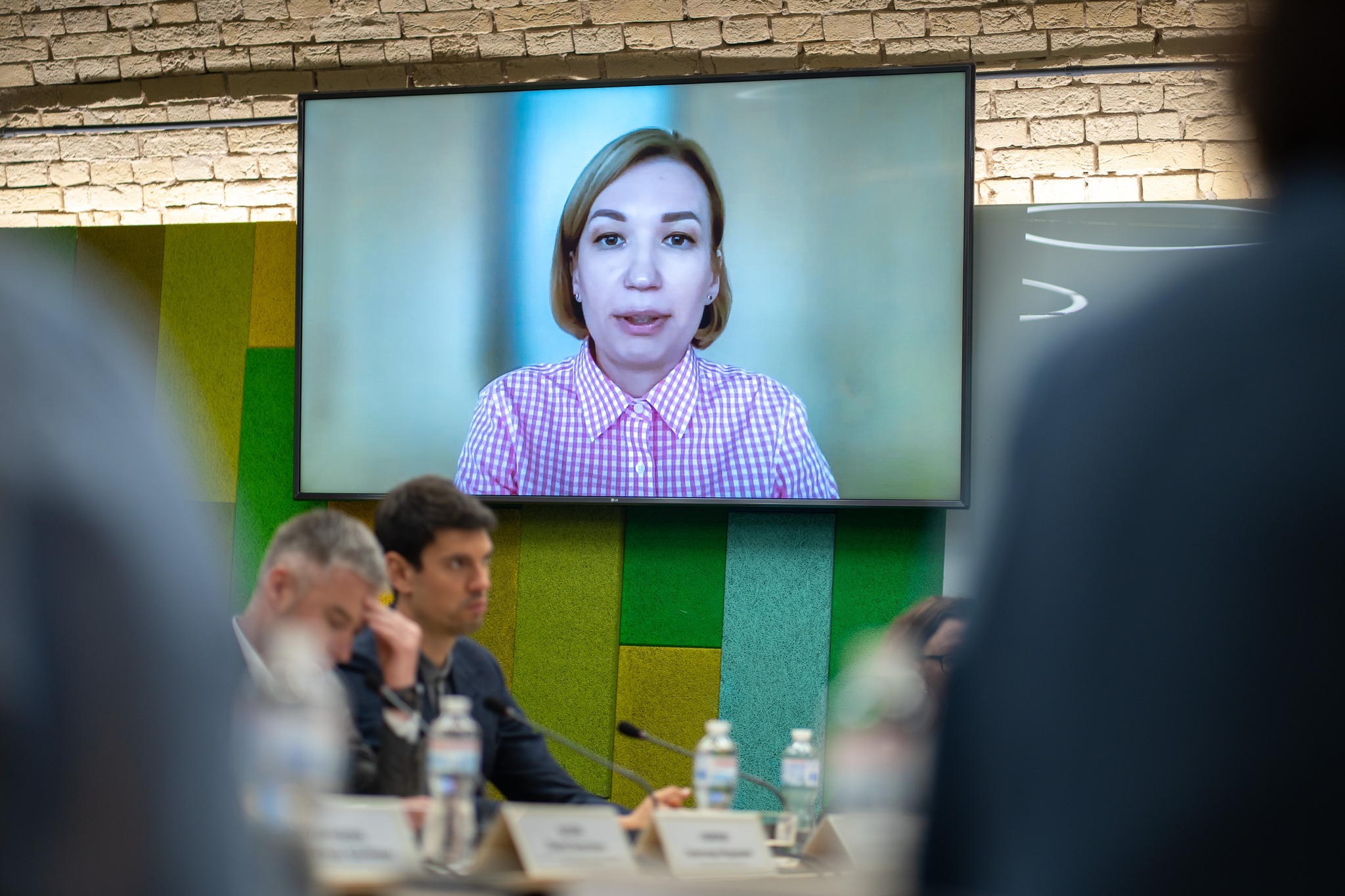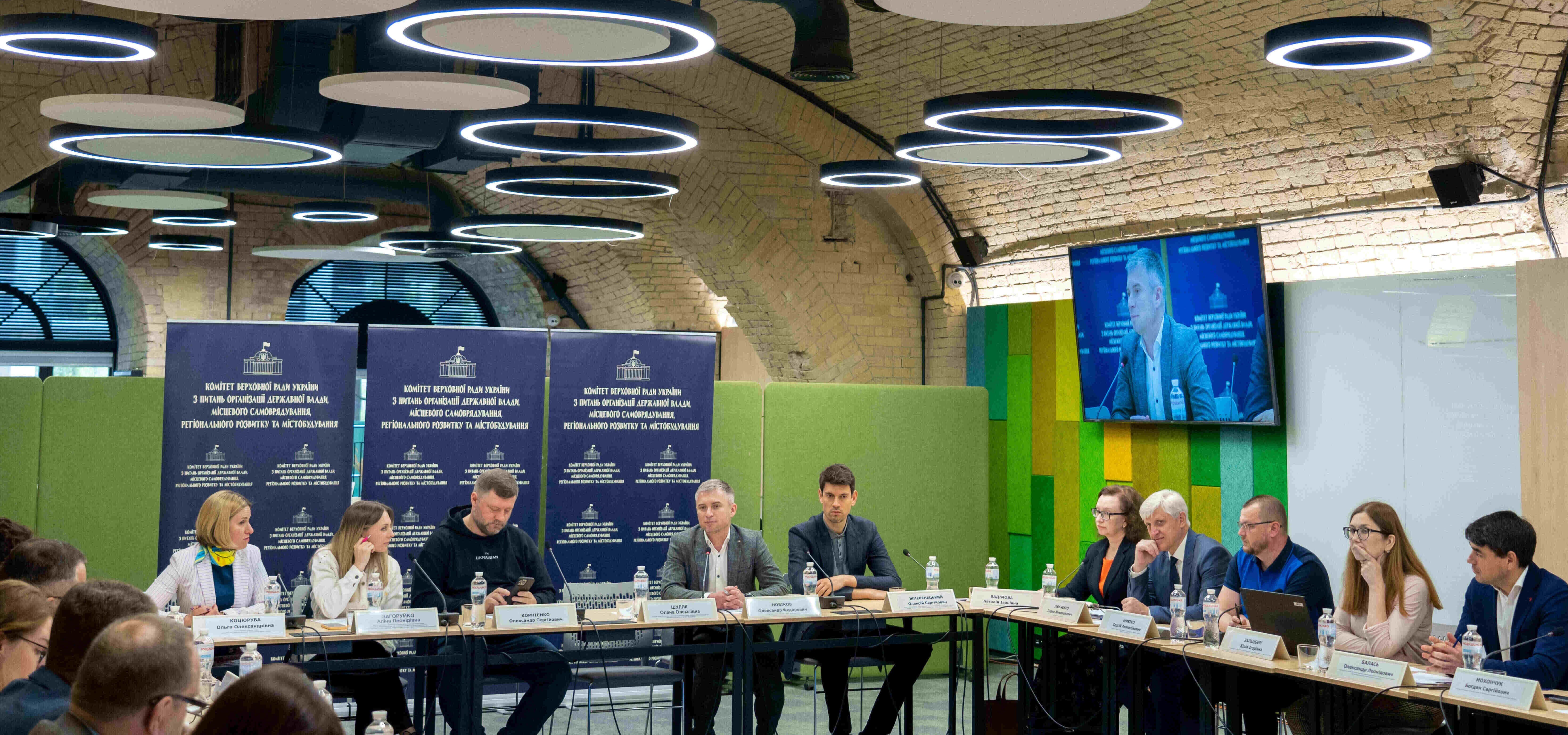For the past three years, political parties have had the right not to report their spending. Now it is necessary to adopt a law on the resumption of reporting, which is one of the preconditions for Ukraine's accession to the European Union. In addition, such a decision will increase the voters' trust in parties because it will testify to their transparency.
The topic was discussed on May 16 during the discussion on “Rules of Political Financing and Responsibility for Violations: Continuation of Reform to Ensure Transparency and Accountability” organized by Civil Network OPORA together with the Parliamentary Committee on State Power, Local Self-Government, Regional Development, and Urban Planning.
First Deputy Chairman of the Verkhovna Rada of Ukraine Oleksandr Korniyenko stressed that the restoration of reporting is not enough:
"We must not only resume the reporting of political parties but also correct at least the aspects that concern political parties, civil society, and the NACP. I think our future is impossible without adopting a new version of the law on political parties. Therefore, if we resume the reporting, we must consider certain aspects through the prism of the future law," Korniyenko said.

Head of the National Agency for the Prevention of Corruption Oleksandr Novikov said that the European Commission requested the GRECO (Group of States against Corruption) to draft an opinion on the compliance of Ukraine's practices and legislation on political financing and reporting with European standards. That is why adopting the law on the resumption of party reporting is so critical.
“Six months ago, the NACP submitted to the Cabinet of Ministers of Ukraine a draft law on the resumption of reporting and inspections. We expect decisive and systematic actions of the government on this matter," the Speaker said.

OPORA's Chair of the Board, Olha Aivazovska, said: “As regards political finances, it is only a certain element of good governance of political parties that are potentially the basis for forming a new coalition, government, etc. The entire public administration system is now based on parties as the basic units nominating lists of candidates during the elections."
The expert emphasized that the next post-war election campaign, whenever it takes place, would be a significant challenge. By then, political parties must have legal certainty about the conditions in which they will operate.
“Intra-party democracy is impossible without regulations that are efficient and flexible in respecting the rights and freedoms and self-determination of the parties themselves, but still act effectively and with account for external challenges. Whenever the healthy political forces are willing to build Ukraine and see it as an EU member, they realize that during open negotiations, the roadmap must include transparency of the financial, party, and political systems and fair and free elections. Non-governmental organizations best understand that the chance of including these issues in the roadmap is quite high,” Aivazovska added.
She stressed that the issues of the future system of reconstruction of Ukraine, financing of democratic reforms, particularly the judiciary, and good governance are on the international community's agenda. After all, the funding of political parties and political processes is one of the "soft tools” for the Russian Federation:
“It should be kept in mind: the more transparent the financing of parties, the more parties are accountable, the greater the trust of voters and, obviously, the less influence of external actors that we do not need in political life,” the expert explained.
Olha Aivazovska also called on the MPs not to ignore the block of issues that should ensure the inescapable nature of punishment for violations of the provisions to be produced — through a certain consensus or advocacy, discussions, and conversations on the transparency of political financing.

Alina Zahoruyko, Deputy Chair of the Committee on State Power, Local Self-Government, Regional Development, and Urban Planning, highlighted that Ukraine, following the example of Europe, focuses on the basic principles of democracy and the values on which the democratic world stands.
"Our event clearly demonstrates Ukraine's commitment to European values. The politics and money talk is always compelling because these phenomena lead to bad consequences when unsettled. It’s the precondition for informal institutions that prevail over formal ones to be built in society,” she said.
Alina Zahoruiko added that there are different approaches to regulating political finances in the world, but Ukraine would introduce its mechanisms that match the Ukrainian context.

According to Olha Kotsiuruba, legal adviser to OPORA, the discussion of political financing should conclude with registering the draft law in the Parliament because this issue is long overdue.
"We know that registering any bill always stirs a new wave of discussions. When the bill is available, then there is more interest among MPs. I hope the draft law is registered still this year, and we will resume the discussion of specific issues, such as private contributions or their cancellation, the refund of campaigning costs, or some features of administrative liability. These are the discussions for the future,” she said.

OPORA compiled some questions to be discussed with key stakeholders and specialists in political financing. You can check them at the link.
A video of the discussion can be viewed here
